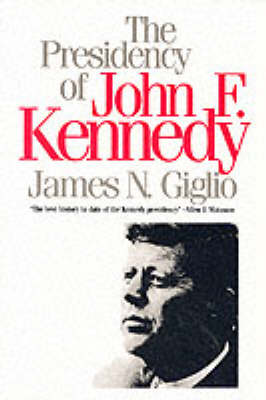American Presidency
1 total work
The author argues that John F. Kennedy's tragic death coloured views of his life, creating a national blind spot that has hindered fair assessment of his administration. Now, nearly three decades after his death, have we begun to look objectively at Kennedy, both as a man and as a president. In this book, historian James Giglio provides a comprehensive assessment of the Kennedy years. As a man, Giglio contends, Kennedy was indeed charming, witty, intelligent, and handsome, but he was also ambitious and vulnerable - a man who often failed to measure up to his romantic image. As president, Kennedy did deal effectively with many domestic economic and social issues, but he provided only sporadic and belated leadership in civil rights. He made little effort to combat poverty. He was more adept at managing foreign crises than preventing them, and by 1963, Giglio writes, Kennedy was on a collision course in Vietnam.
Giglio utilizes newly opened material from the Kennedy Library to provide up-to-date analysis of a variety of issues (including agriculture, space, organized crime, and the Kennedy assassination) and personalities (Jacqueline Kennedy, Robert Kennedy, Adlai Stevenson, Dean Rusk, Chester Bowles, and members of the White House staff and press).
Giglio utilizes newly opened material from the Kennedy Library to provide up-to-date analysis of a variety of issues (including agriculture, space, organized crime, and the Kennedy assassination) and personalities (Jacqueline Kennedy, Robert Kennedy, Adlai Stevenson, Dean Rusk, Chester Bowles, and members of the White House staff and press).
